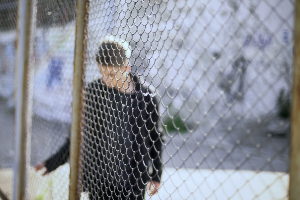
Looking to Juvenile Justice in 2014
Blog from Attorney Anne Wedge-McMillen
In this New Year time of transition and new beginnings, I have had the opportunity to review and consult with several juvenile clients. One theme recurs again and again – juveniles suspected of committing crimes are being interrogated by law enforcement officers without any knowledge of their rights. Now I know that the Miranda warnings; the right to remain silent, the right to an attorney, the warning that anything you say may be held against you, are usually only required in a custodial interrogation setting. Custody is commonly referred to as under arrest or detained by law enforcement. In the juvenile context however, the courts have come to view the idea of custody for purposes of Miranda as something more subjective.
For example, in the case of State v. C.F., the appellate court defined “custody” for the purposes of juvenile custodial interrogation much more specifically to the individual juvenile; in other words, what did the juvenile feel when the police were questioning him or her? See State v. C.F., 798 So.2d 751 (4thDCA 2001). The Court stated there are four factors which determine whether a suspect is in custody for purposes of the Miranda warnings being given by law enforcement prior to questioning of the juvenile by the police. Id. Those factors are: “(1) the manner in which the police summon the suspect for questioning; (2) the purpose, place, and manner of the interrogation; (3) the extent to which the suspect is confronted with evidence of his guilt; and (4) whether the suspect is informed he or she is free to leave.” Id. at 754. In the C.F. case, police questioning of a juvenile suspect at his home, with the permission and presence of his parents, was determined to be custodial and the Miranda Warnings should have been given.
The statements given by C.F. which were admissions of his guilt were suppressed by the court. Even more significantly in that case, the BB gun discovered based on the juvenile’s admissions was also excluded since it was discovered only as a result of the interrogation.
Of course, this isn’t to say that all statements given to law enforcement officers in the home or at school or in any location other than a police station or jail cell will be suppressed if Miranda warnings are not given. More attention should be paid by parents, attorneys, and law enforcement officers however, to the intimidation factor; the fact that juvenile suspects are young and subject to easy intimidation and that their parents often think that “cooperating with the police” is something the juvenile has to do. When a child is accused of a crime, and the government is taking action, questioning the child isn’t like asking your kids who broke the lamp because that child is going to bed without dessert. The consequences of answering the sometimes leading and argumentative questions of law enforcement officers could be felony convictions, detention in jail or juvenile programs or if the juvenile is old enough and the juvenile crime serious enough – adult court and prison. Juveniles deserve the same justice as adults, and because they can so easily be taken advantage of their rights should be more fervently protected.


